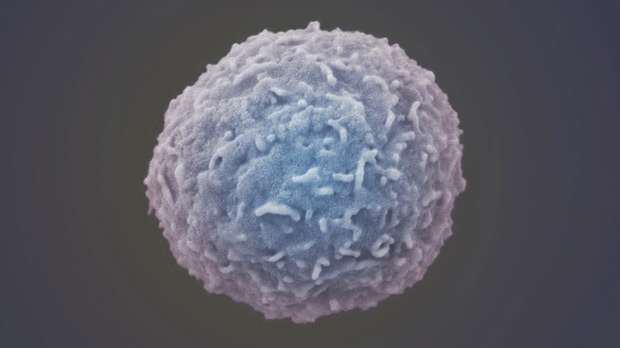A type of chemotherapy drug appears to work by tricking cells into thinking they're infected with viruses, according to Canadian researchers studying bowel cancer cells.
The new research, published in the journal Cell, overturns the previous view that these drugs switch off some of the genes responsible for cell growth.
The discovery suggests that the treatment, called a 'hypomethylating' drug, could have wider uses. It could also lead to new combinations of existing therapies, and even the development of completely new drugs, the researchers say.
The drugs are normally used to treat certain forms of blood cancer. But, in this latest study, the research team used a laboratory model of bowel cancer to examine what happened inside cells exposed to one of these drugs - called decitabine.
Decitabine works by stripping a cell's DNA of tiny molecular tags, known as epigenetic tags.
This changes gene activity, causing cells to stop growing. But exactly which genes are affected has remained a mystery.
The researchers showed that, rather than directly affecting genes involved in cell growth, decitabine reawakened long-dormant viruses hidden in the human genome. This triggered the cell's anti-virus systems to halt cell growth.
The effect was seen most acutely in bowel cancer stem cells – rare, treatment-resistant cells within a tumour thought to fuel the disease's growth and recurrence.
Targeting these cells has proven elusive.
"We have found a switch to turn on an anti-viral response in [bowel] cancer stem cells, which seem to be especially sensitive to it," says study leader Dr Daniel De Carvalho, from the Princess Margaret Cancer Centre, in Toronto.
This, he said, raises the possibility of combining the drugs with newer therapies that activate the immune system.
"By mimicking a virus the potential is to trick the immune system into 'seeing' the cancer cells as an infection that needs to be destroyed."
Professor Bob Brown, a Cancer Research UK-funded expert in epigenetics, said the research was a "new way of thinking".
"This fascinating research gives new insight into how drugs like decitabine might possibly work.
"But the study was done in laboratory grown tumour cell models, and needs confirming in human tumours before we can find out whether it would benefit patients."
More information: DNA-Demethylating Agents Target Colorectal Cancer Cells by Inducing Viral Mimicry by Endogenous Transcripts Cell, 162 (5), 961-973 DOI: 10.1016/j.cell.2015.07.056
Journal information: Cell
Provided by Cancer Research UK























